“Behind each product is a family, a community, their history, and their struggles,” Ana Cristina Rincon (Cristina), the director and founder of Latin Asia said.
“Each bag takes one indigenous lady [between] three to six weeks to weave. While they were weaving it, they had to endure the hardship of the desert, care for their children, and on many occasions, make ends meet.”
“There is a story behind each of our products, and it does not include an automated production line. This is real value,” Cristina described the products behind her brand.
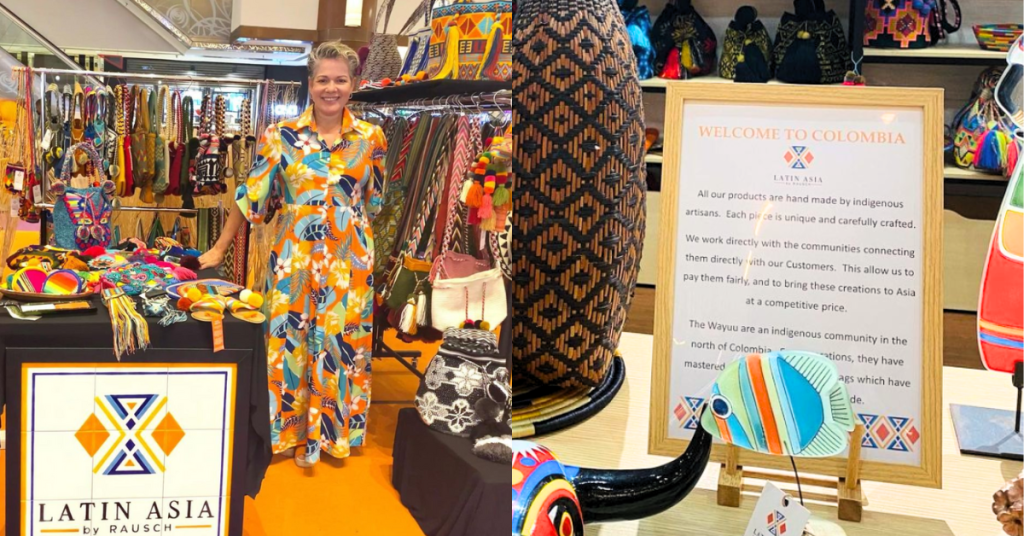
Born and raised in Medellin, Colombia, Cristina always had national pride and it showed through her choice of career. Before departing her homeland in 2004, she was a Logistics Assistant to a presidential aide of the President of Colombia.
This sense of patriotism continued long after she left the country and ended up in Malaysia, following her husband’s then-new role at Bumi Armada.
Not long afterwards, Cristina met a party that was informally selling Colombian Wayuu bags in KL. When this party transferred out of the country, Cristina agreed to continue the business here as a partner. But then things took a turn.
“I was interested in growing the scope and bringing other Colombian crafts besides the (indigenously crafted) bags, but this was of no interest to the partner. As a result, the informal partnership ended,” she explained.
While confiding in her husband, Hans, he gave her the idea to properly establish the business as it showed potential. “Hans agreed to support and contribute to the business (in terms of business administration and supply chain management advise and support) only if it was formalised.”
That marked the beginning of Latin Asia and their journey of becoming cultural ambassadors of Latin America in Asia. Starting with Malaysia, naturally.
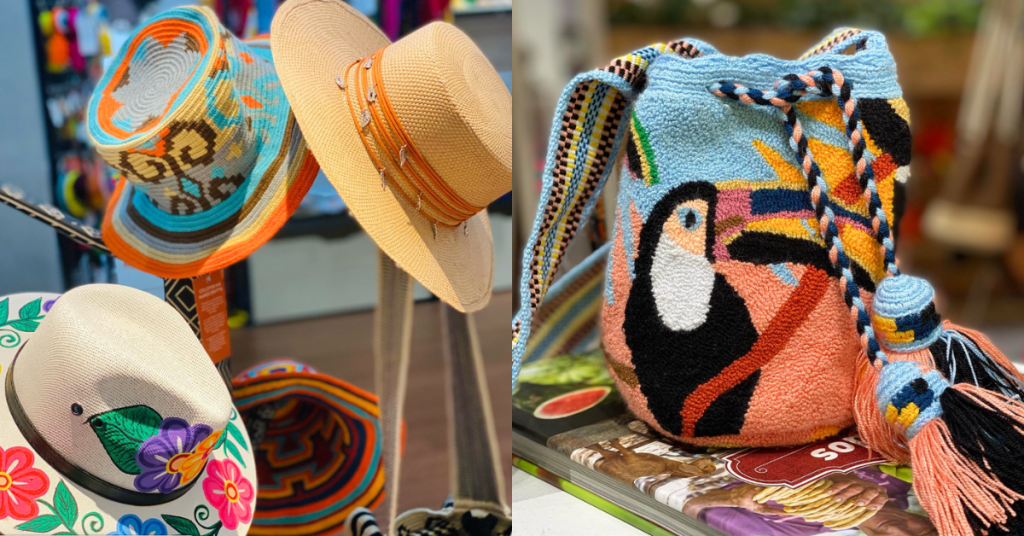
It’s not an effort to diminish the local community
A quick browse through the brand’s Instagram page and the first two words that come to mind are bright and colourful.
The handwoven bags feature an array of designs that would make any outfit pop. But that’s not the only point. Fashion aside, each bag is made using traditional weaving techniques that have been passed down for generations.
For example, the matriarchal Wayuu community learns how to weave when the girls come of age. An old saying further supports this statement, “To be a woman is to know how to weave.”
Wayuu bags (which seem to be their bestsellers) are part and parcel of the Wayuu culture, similar to how the other products sold in Latin Asia are the core of the respective Latin American indigenous groups. They include the Zenú, Arhuaco, Sikuani, Canáan, Kakuamos, and the artisans of Guacamayas.
Currently, the brand’s product range includes bags, hats, sandals, hammocks, wind chimes, and many more. The starting price is RM30 and can go up to RM2,000. Orders can be made through the brand’s website, or at their physical stores at The Linc and Lalaport.
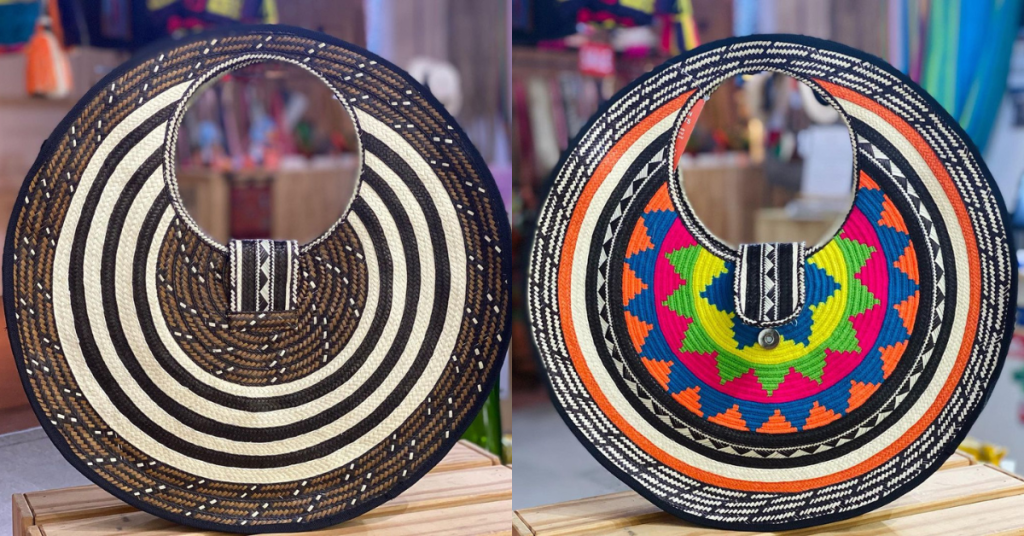
You might wonder, how does Latin Asia’s work affect the work of local organisations trying to highlight our own Malaysian indigenous communities?
Cristina acknowledged this concern, and said that Latin Asia has no intentions of taking the spotlight away from them.
Instead, the director believes that it is simply her duty to represent and promote Latin American culture in Asia since they’re already based here.
“Most countries in the world have communities that work handcrafts and they are a clear representation of their origins and culture,” she said.
At the end of the day, culture is meant to be shared, and doing so fosters a better understanding of how diverse the world is.
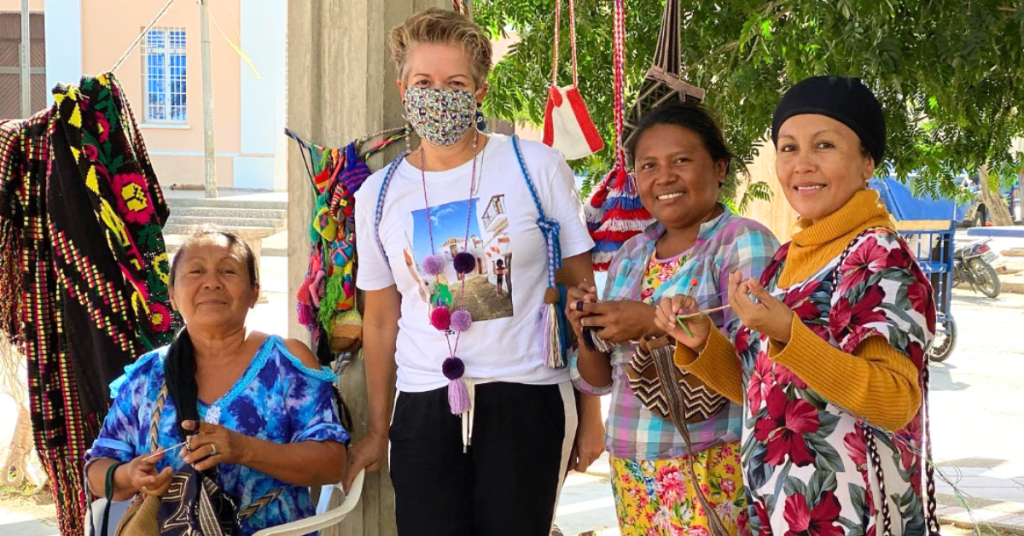
Each piece is uniquely from Latin America
When Latin Asia first launched, the brand continued purchasing from the Colombian communities that Cristina was previously in touch with. But as they continued searching for new handicrafts and reliable suppliers, the list eventually grew.
Their participation in a Bogota trade show also helped make this possible, as it brings together many of the “best artisans” of different communities in Colombia.
“Although handcrafts are abundant across Latin America, it is not easy to identify and develop suppliers that are consistent, reliable, quality-oriented, and responsive,” Cristina explained.
The couple also visits their suppliers in Colombia frequently on a regular basis to observe new designs, processes, and the latest developments of indigenous crafts.
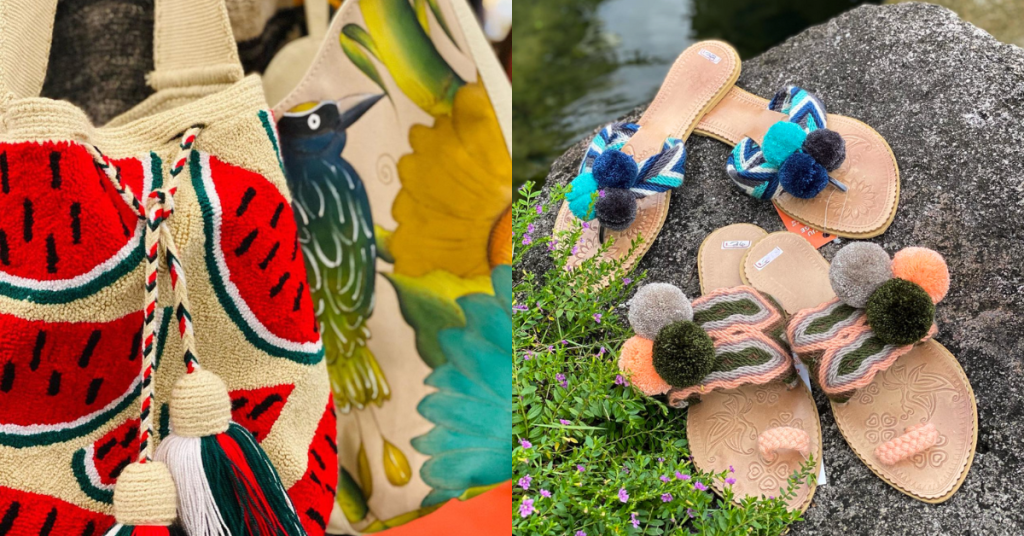
Normally, a pilot order is placed to see the new item’s reception. “If they do well, we place orders from Malaysia.”
Oftentimes though, the brand would request the weaving of particular designs before consolidating the shipments to Asia.
It helps that one of the brand’s team members lives in Barranquilla, Colombia. Her main role includes quality control, inventory checking, and preparing the orders for their voyage to Asia.
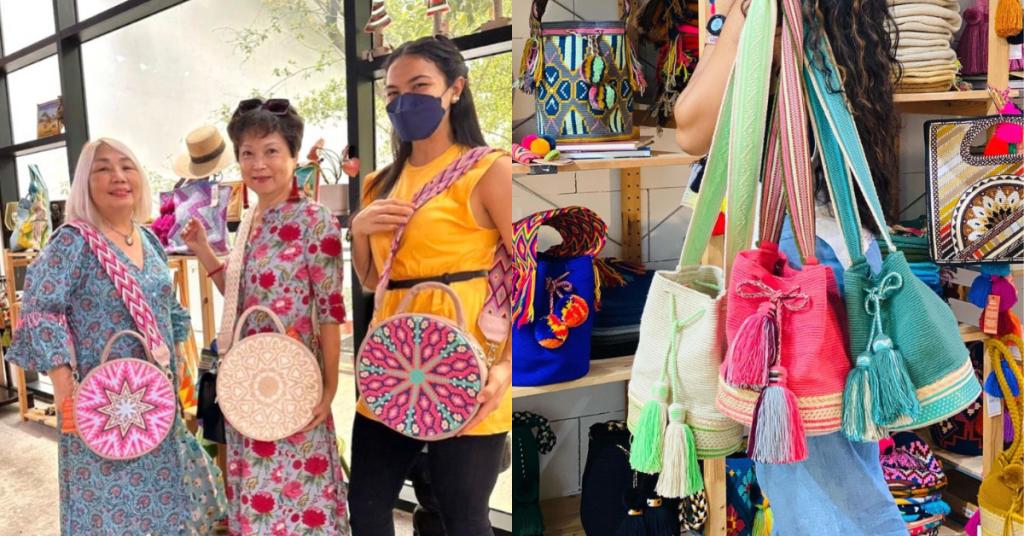
It’s all about community spirit
In the beginning, most of Latin Asia’s customers were expatriates, including Europeans, Japanese, and Koreans. But as the business grew and expanded into physical retail outlets, so did the customer base.
“We now have customers of all origins and age groups,” Cristina proudly shared.
“We make the best efforts to teach people about the process, its origins, and how our prices are actually very low considering the uniqueness of our products and the lengths that we had to go through to get them to Malaysia.”
This is done by training their staff members on their catalogue’s origins and product nature. There are also books at the outlets that help illustrate and give better context to customers.
Each product comes with a tag that has a brief description of the indigenous culture the products are from, as well as the overall Colombian crafts available.
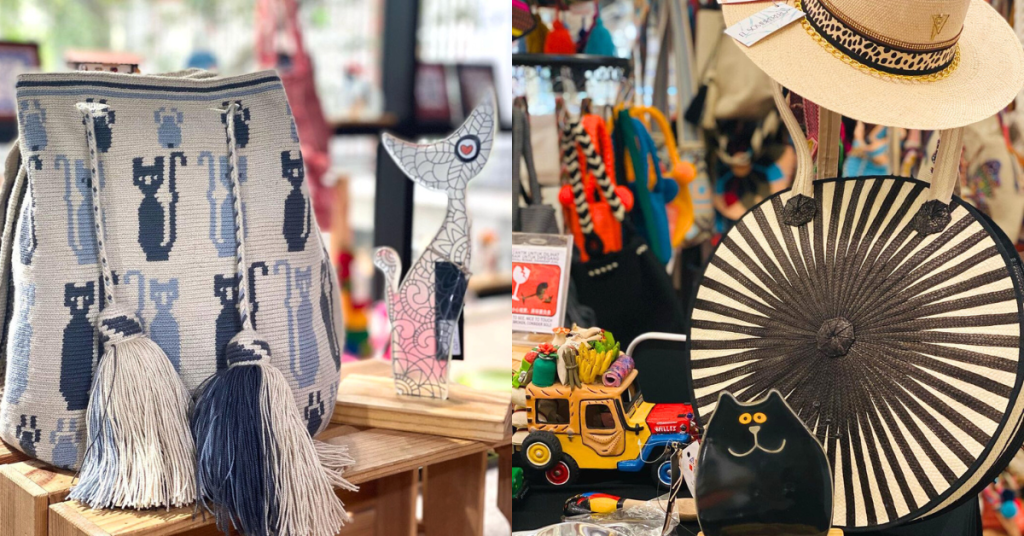
“This setup allows us to pay fair to the communities that we support, control the total delivery costs, and offer the products at a competitive and accessible price to our customers.”
For context, the director explained that Latin Asia never negotiates discounts. “We pay what they ask as we realise that every cent counts to them. [And] we provide quality advice to ensure that they meet international quality standards.”
The brand also does its due diligence by donating to the indigenous communities, such as purchasing groceries and providing school kits for them.
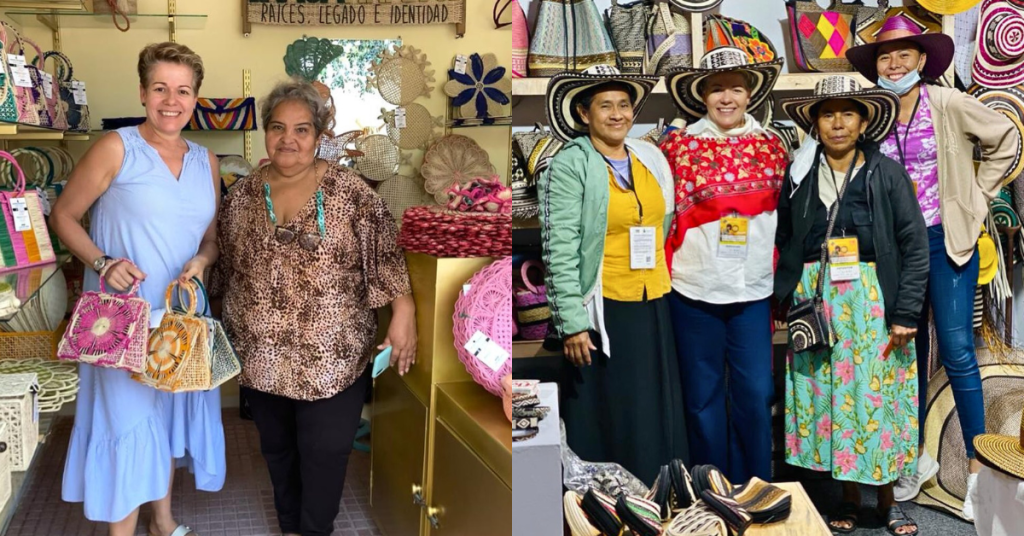
Moving forward, Latin Asia aims to grow and expand into other locations beyond just KL. One way it plans to achieve this is by opening franchising agreements.
“As we have direct access to the supply base and manage the end-to-end logistics, we have a competitive advantage that is of interest to potential investors,” Cristina shared.
The director admitted that having the right partner that complements the team’s strengths for organic and phased growth would help, as “We are not experts in every market.”
But before actively pursuing that, the goal is to stabilise the business and ensure there’s sufficient capital for its next growth phase. “To achieve this, we are preparing to upgrade our webpage and invest in marketing.”
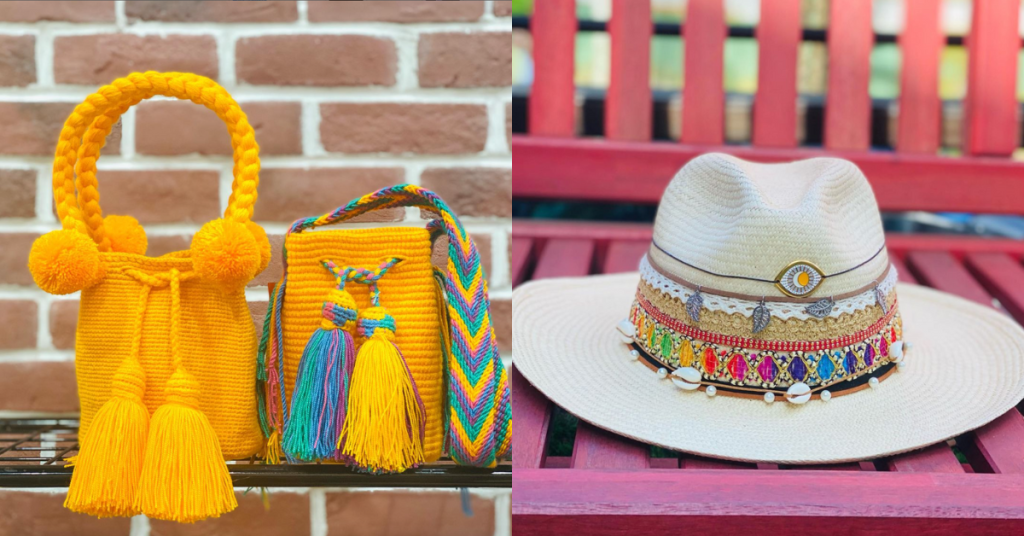
- Learn more about Latin Asia here.
- Read articles we’ve written about Malaysian startups here.
Featured Image Credit: Latin Asia
Stay connected with us on social media platform for instant update click here to join our Twitter, & Facebook
We are now on Telegram. Click here to join our channel (@TechiUpdate) and stay updated with the latest Technology headlines.
For all the latest Life Style News Click Here
For the latest news and updates, follow us on Google News.
